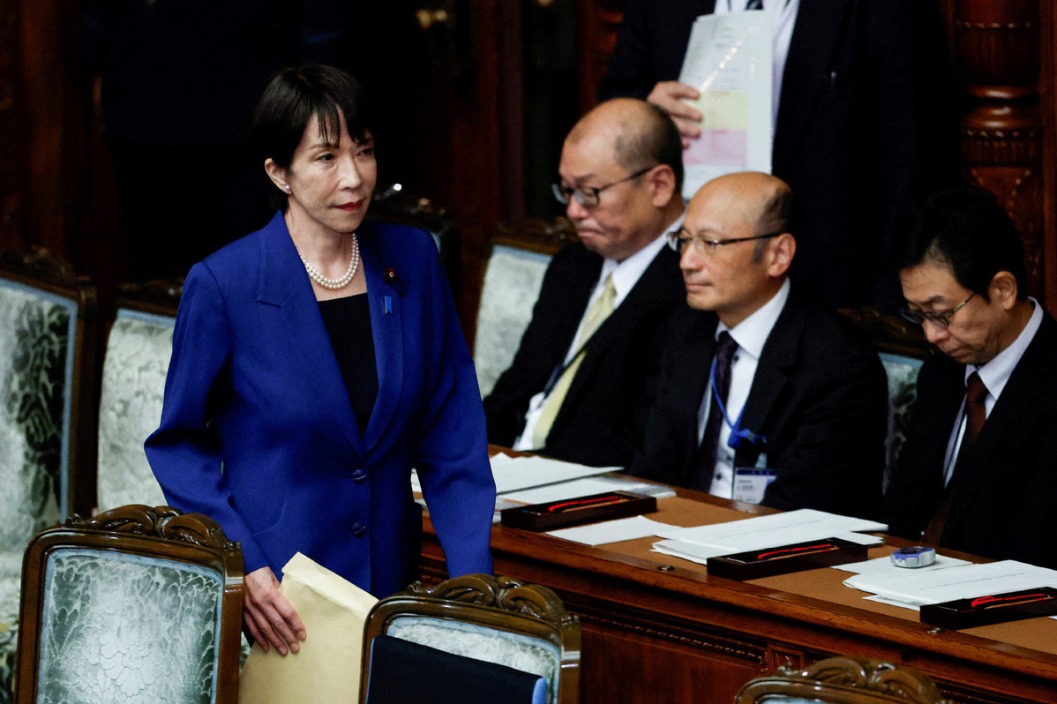Disregard of three principles prolongs conflict: China Daily editorial


The Chinese Foreign Ministry on Monday called for de-escalation of the Russia-Ukraine conflict after recent reports of Ukrainian troops entering Russia's border region of Kursk.
In a statement, the ministry said China will continue to maintain communication with the international community and play a constructive role in promoting the political settlement of the crisis. It added that China calls on all parties to abide by the "three principles" of no expansion of the battlefield, no escalation of fighting and no fanning of the flames by any party.
In stark contrast to the Joe Biden administration reaffirming the United States' "unwavering support for Ukraine" in a document issued on Friday, four days after Ukrainian forces entered Kursk, Beijing's statement reflects China's neutral stance and its earnest desire to see an early political settlement of the crisis.
The fact sheet "US Security Cooperation with Ukraine", issued after Ukrainian forces advanced into the hinterland of Russia's Kursk region, testifies to the Biden administration's intention to take credit for the "achievement" to give a boost to the Democratic Party ahead of the upcoming US presidential election.
To date, the US has provided more than $55.4 billion in military assistance to Ukraine since the conflict began on Feb 24, 2022, according to the document.
With Republican presidential candidate Donald Trump attacking its strategic misjudgment and lack of means to end the conflict, the protracted hostilities between Russia and Ukraine have become a negative asset for the Democratic Party in the run-up to the November elections.
The Biden administration had long hesitated to allow Kyiv to use NATO weapons to attack Russian targets beyond the border, not to mention supporting it to enter Russian territory, for fear of triggering an open conflict between Russia and the North Atlantic Treaty Organization.
So by finally giving Kyiv the green light and all necessary intelligence and material support to launch the surprise attack, Biden is ensuring that his proxied aggression against Russia gets a new lease of life even as he prepares to leave office.
While the battlefield gambit may have been a morale booster for the Ukrainian forces, Kyiv will be clearheaded that the progress the Ukrainian forces have made on Russia's land so far is temporary, as it will be very difficult for them to hold on to their gains. It will also know that the consequences and possible costs of the move remain to be taken into account.
It is the US' shortsighted prodding of Ukraine to carry the fighting to Russia that has rendered all previous efforts to seek an early end to the Ukraine crisis in vain. The strategic purpose of the latest US-sponsored Ukrainian offensive is ill-defined, and is unlikely to give Ukraine the upper hand in the fighting. And before it takes back its lost land by force, Moscow might not consider any talks.
While the Ukrainian offensive may have served the needs of US domestic politics, the question is for how long that need will continue to prolong the Ukraine crisis.
There is no doubt that regardless of how the Russia-Ukraine conflict unfolds, Russia's ambition to remain a world power based and rooted in Europe will not change. Nor will its stance on matters concerning its core interests and its firm resolve to preserve a safety zone on its periphery change.
While China is accused by the US and NATO of siding with Russia, the Chinese position and role with respect to the conflict have to do with the characteristics of how it approaches international relations. As neither the creator of the conflict nor a party to it, China respects both countries' reasonable needs on security and sovereignty. As such it opposes the groundless expansion and aggression of NATO, which embodies Cold War thinking.
Instead of trying to take advantage of the crisis or profit from it, as the US is doing, China has made low-key but consistent efforts to promote dialogue between the two parties so they can arrive at a solution to resolve their differences.
Despite the continued warmongering of the US that is fanning the flames of the fighting, China will continue to work for peace as long as there still exists a ray of hope.


































